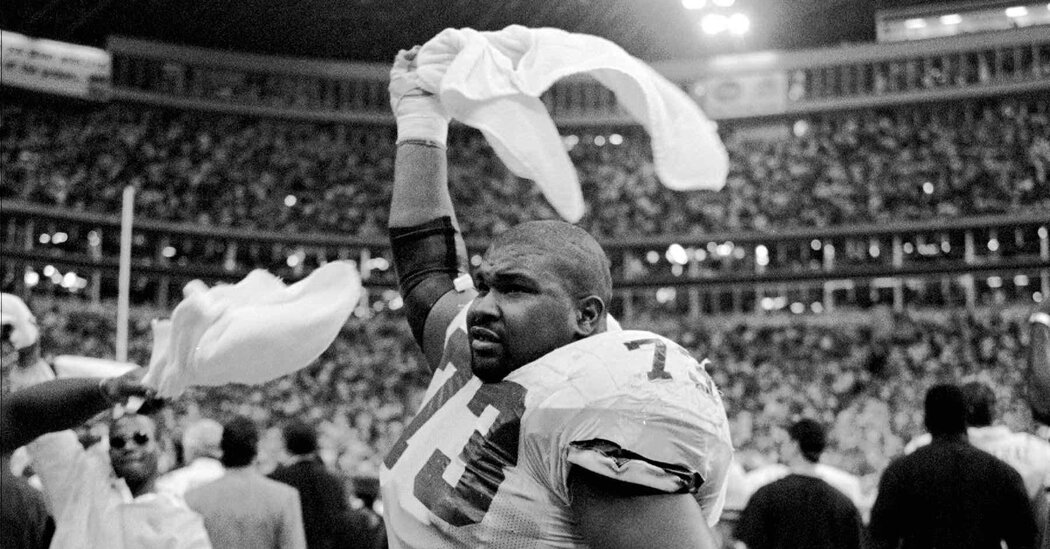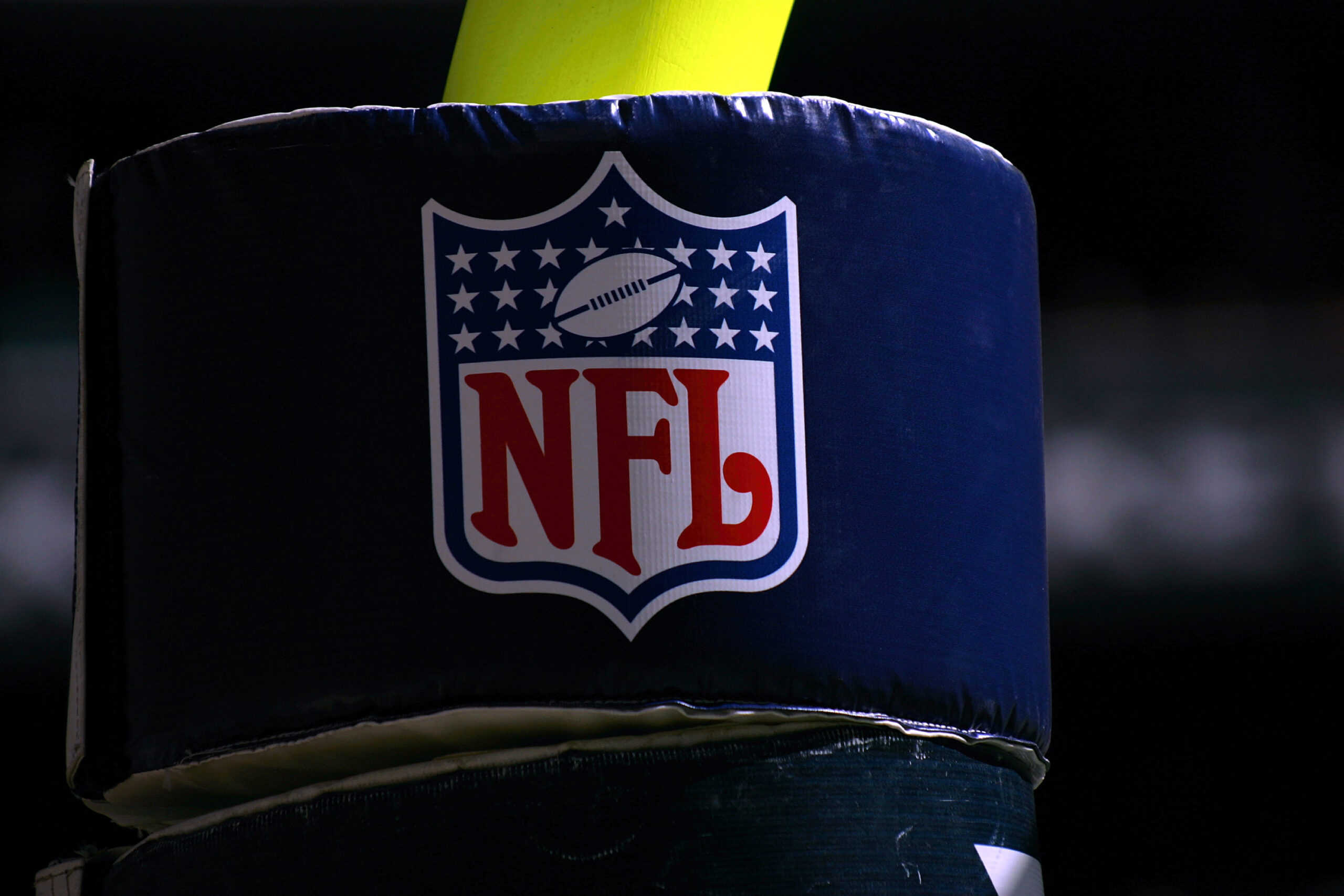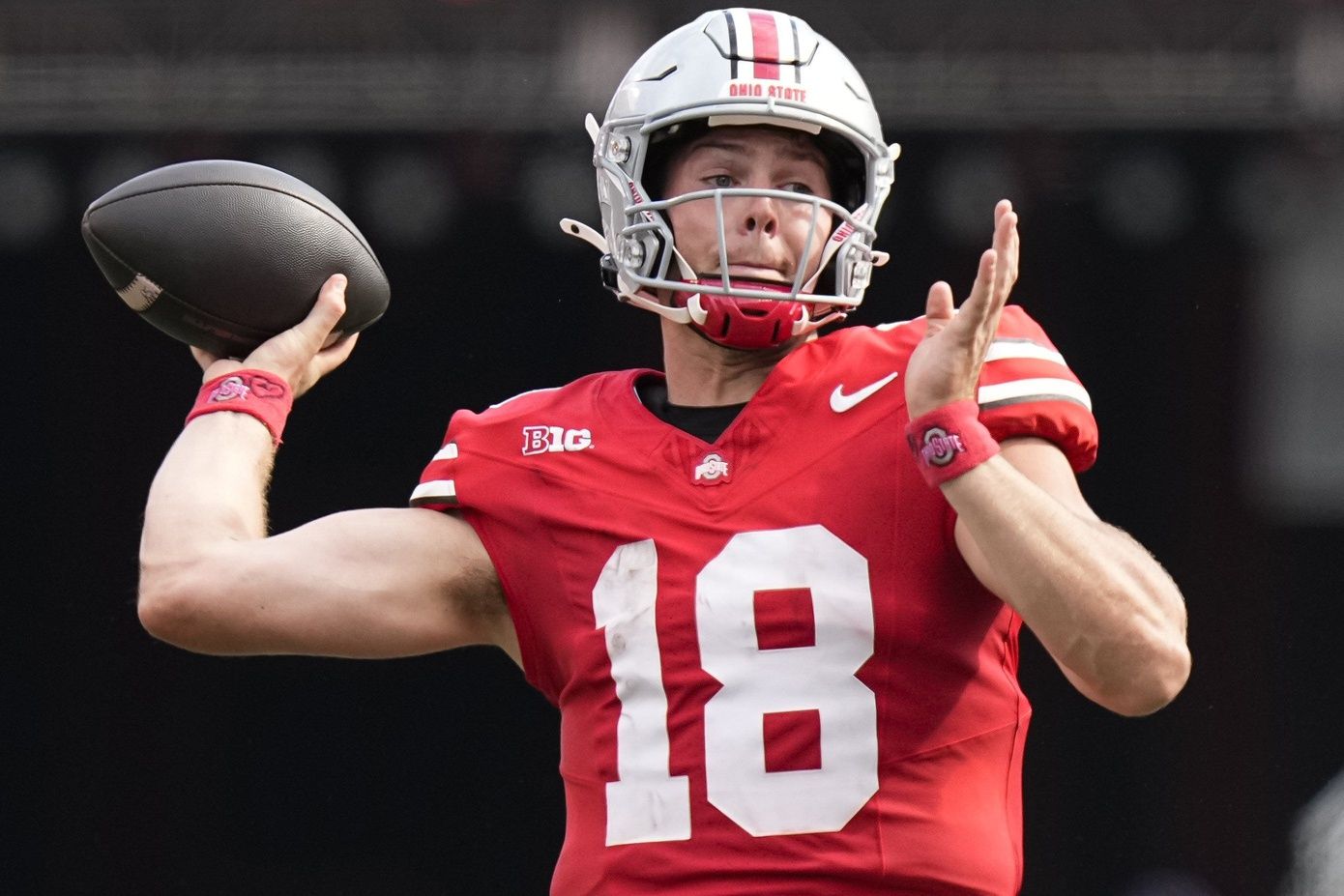[ad_1]
Larry Allen, a road grader of a guard and tackle for the Dallas Cowboys who, leveraging seemingly superhuman strength, cleared a path to a Super Bowl victory in 1995 and tallied 11 Pro Bowl selections, earning consideration as one of the greatest offensive linemen in National Football League history, died on Sunday in Mexico. He was 52.
His death, which occurred while he was on vacation with his family, was announced by the Cowboys, his team for the first 12 years of his 14-year career. The team did not cite a cause or say where in Mexico he died.
As the most dominant player on one of football’s most dominant offensive lines, Allen was a key addition to the dynastic 1990s Cowboys teams that were studded with Hall of Famers like Troy Aikman, Michael Irvin, Deion Sanders and Emmitt Smith, who routinely blew through holes created by Allen on his way to becoming the league’s all-time rushing leader.
Drafted as a guard, Allen played every position on the offensive line except center. A seven-time All-Pro, he was a first-ballot inductee into the Pro Football Hall of Fame in 2013 and was named to the league’s all-decade teams for both the 1990s and the 2000s.
Working in the in the trenches, Allen did not stand out to casual fans in the same way his touchdown-scoring All-Pro teammates did. But those teammates keenly understood his value. “I always hear people say Larry was the best offensive lineman in the game, and that’s just not right,” Irvin once said. “Larry was the best player in the league, and it wasn’t even close.”
Allen, who stood 6-foot-3 and weighed about 325 pounds, was a Goliath among Goliaths, known as the strongest player in the league. In 2001, he left jaws agape after bench-pressing 700 pounds in the Cowboys’ weight room.
He blew away the field in the “strongest man” competition at the 2006 Pro Bowl. Allen breezed through 43 reps on a 225-pound bench press, prompting ESPN’s Chris Berman to observe, “Those first 30, he looked like he was lifting a salad fork.”
But Allen was more than just a mountain of a man. Blessed with impressive quickness and speed for his size, he was a total athlete. He astonished coaches at Sonoma State University who were recruiting him by showing that, at 320 pounds, he could dunk a basketball.
“You could have heard a pin drop when he slammed the ball,” Tim Scalercio, a Sonoma State coach, said in a 2013 interview. “It was like in the movies where it just goes ‘tick, tick, tick, tick’ and stops.”
Even the best defensive linemen who went up against Allen often ended up on the wrong end of a pancake block. John Randle, a star defensive tackle for the Minnesota Vikings who was known for his trash talking, tended to clam up when he faced Allen. “That man could launch you,” Randle said in a 2010 N.F.L. video honoring Allen as one its top 100 greatest players. “It was like going up against a bear.”
Allen himself went about his business quietly. “During my career, I didn’t talk that much,” he said in his Hall of Fame induction speech. “I didn’t have to, I used my helmet.”
Larry Christopher Allen Jr. was born in Los Angeles on Nov. 27, 1971, to Larry and Vera Allen.
Growing up in Compton, Calif., he started playing football as a way to stay out of trouble on the streets. Still, trouble occasionally found him. When he was about 10, he was stabbed 12 times while trying to protect his younger brother in a fight.
After his father left the family, his mother sought to keep him from the temptations of gang life, moving from Compton to Northern California and enrolling him in a series of high schools, including, ultimately, Vintage High School in Napa, although he did not graduate.
Without the academic credentials to play football for a Division 1 college program, he spent two years starring at Butte College, a community college in Oroville, Calif., before landing at Sonoma State, about 50 miles north of San Francisco.
Although the university was anything but a football factory, Allen was twice an All-American there, allowing only one sack in two seasons. The Cowboys chose him in the second round of the 1994 N.F.L. draft, and he took little time to make his mark.
During a “Monday Night Football” game against the New Orleans Saints in his rookie year, a rumbling Allen astonished viewers by chasing down the fleet-footed linebacker Darion Conner, who had a seemingly clear path to the end zone after an interception. “That’s one of the most impressive athletic feats I have ever seen,” the announcer Dan Dierdorf said.
Allen’s survivors include his wife, Janelle (Trimboli) Allen; two daughters, Jayla and Loriana Allen; and a son, Larry III, a former guard for Harvard.
After his storied run with the Cowboys, Allen played two seasons with the San Francisco 49ers, where he earned his final Pro Bowl nod before retiring in 2008.
As John Madden, the Hall of Fame coach and broadcaster, once said of Allen, “If somebody said to God, ‘What should all the guards look like?,’ then he would send Larry Allen down.”
[ad_2]



